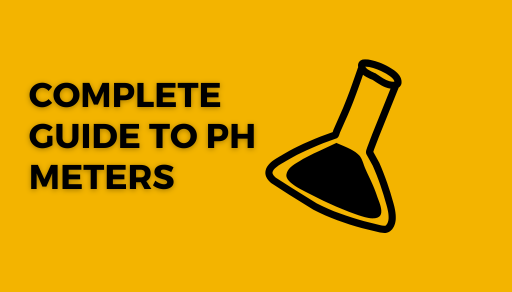In the world of modern science and technology, precision and accuracy are paramount, especially when it comes to measuring acidity and alkalinity levels. pH meters have emerged as indispensable tools in various industries, from agriculture and food production to environmental monitoring and research. Our handy pH meter guide will outline the pH meter’s features, applications, and how a meter should be calibrated.
What is pH and Why Does it Matter?
pH is a fundamental parameter used to measure the acidity or alkalinity of a solution. Ranging from 0 to 14, a pH value of 7 is neutral, while values below 7 are acidic, and those above are alkaline. Accurate pH measurement is crucial in numerous fields, such as water quality analysis, hydroponics, fermentation processes, and pharmaceutical production.
How Do pH Meters Work?
A pH meter measures the electrical potential (voltage) that a sample produces. It is comprised of these components: a moving coil or digital meter, and a pH probe that can be inserted into the sample being tested.
The pH probe contains two electrodes: a measuring electrode (glass electrode) and a reference electrode. When the pH probe is inserted into a sample, the pH meter measures the difference between the glass and reference electrodes. The reference electrode remains constant while a pH probe is inserted into a sample, but a glass electrode varies based on what sample the pH probe is inserted into. The difference between the two electrodes constitutes the pH of the sample.
Types of pH Meters: Portable vs Benchtop
pH meters are available in two primary categories: portable and benchtop models. Portable pH meters offer mobility and convenience, making them ideal for fieldwork, water testing, and on-the-go applications. Benchtop pH meters on the other hand are more sophisticated, and provide advanced features suitable for laboratory settings and industrial applications where accuracy and precision are critical.
Calibration: The Key to Accurate pH Measurements
To ensure reliable and precise pH measurements, regular calibration is essential. pH meters require calibration with a standard buffer solution (a solution that maintains a constant pH when an external acid or base is added to it). This process ensures that readings remain accurate over time. Depending on the pH meter’s type and usage, single-point or multi-point calibration may be necessary for optimal performance.
Common Applications of pH Meters
pH meters find extensive use across diverse industries and research fields:
- Water Quality Analysis: In environmental monitoring pH meters assess the acidity of natural water bodies, monitor the quality of drinking water and help ensure a healthy environment for aquatic life. pH meters also help maintain the appropriate pH levels to ensure safe swimming conditions for humans.
- Agriculture and Hydroponics: pH measurements in soil and hydroponic solutions help optimise crop growth and nutrient availability, ensuring healthy plant development.
- Food and Beverage Production: pH meters play a crucial role in ensuring the safety and quality of food and beverages by monitoring acidity levels during fermentation, brewing, and food processing.
- Pharmaceuticals and Chemical Manufacturing: pH meters are vital in pharmaceutical production as they help monitor drug metabolism and ensure product quality.
Maintenance and Care of pH Meters
Proper maintenance and care of pH meters is essential for their longevity and accurate performance. Regular electrode cleaning, storage in proper storage solutions, and adherence to the manufacturer’s maintenance guidelines are crucial for obtaining reliable pH measurements.
As technology continues to evolve pH meters remain steadfast in their significance across various industries and scientific domains. By understanding their applications, professionals can harness the power of pH meters to optimise processes and ensure the quality and safety of countless products. From the lab to the field, pH meters continue to be a trusted companion.
At Techmate, we recognise the significance of choosing the right pH meter. Our selection of pH meters are suitable for a wide range of laboratory research environments. Don’t hesitate to reach out to us, we can help you pick out the best pH meters or other lab supplies for your needs.


